Five things to look out for at the Vuelta a España 2021 week one
The final Grand Tour of the year kicks off with a tough first week
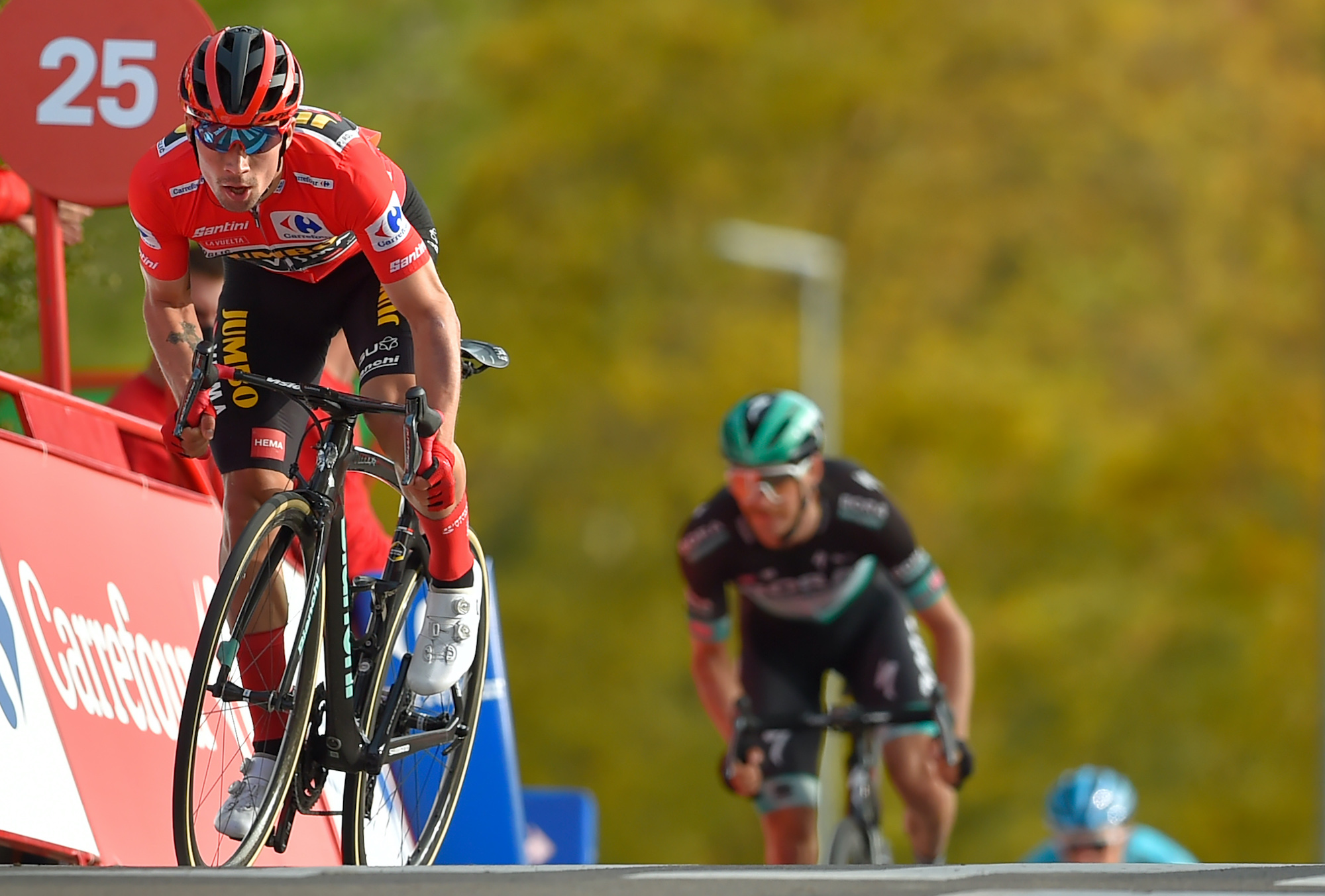
Roglič taking the initiative
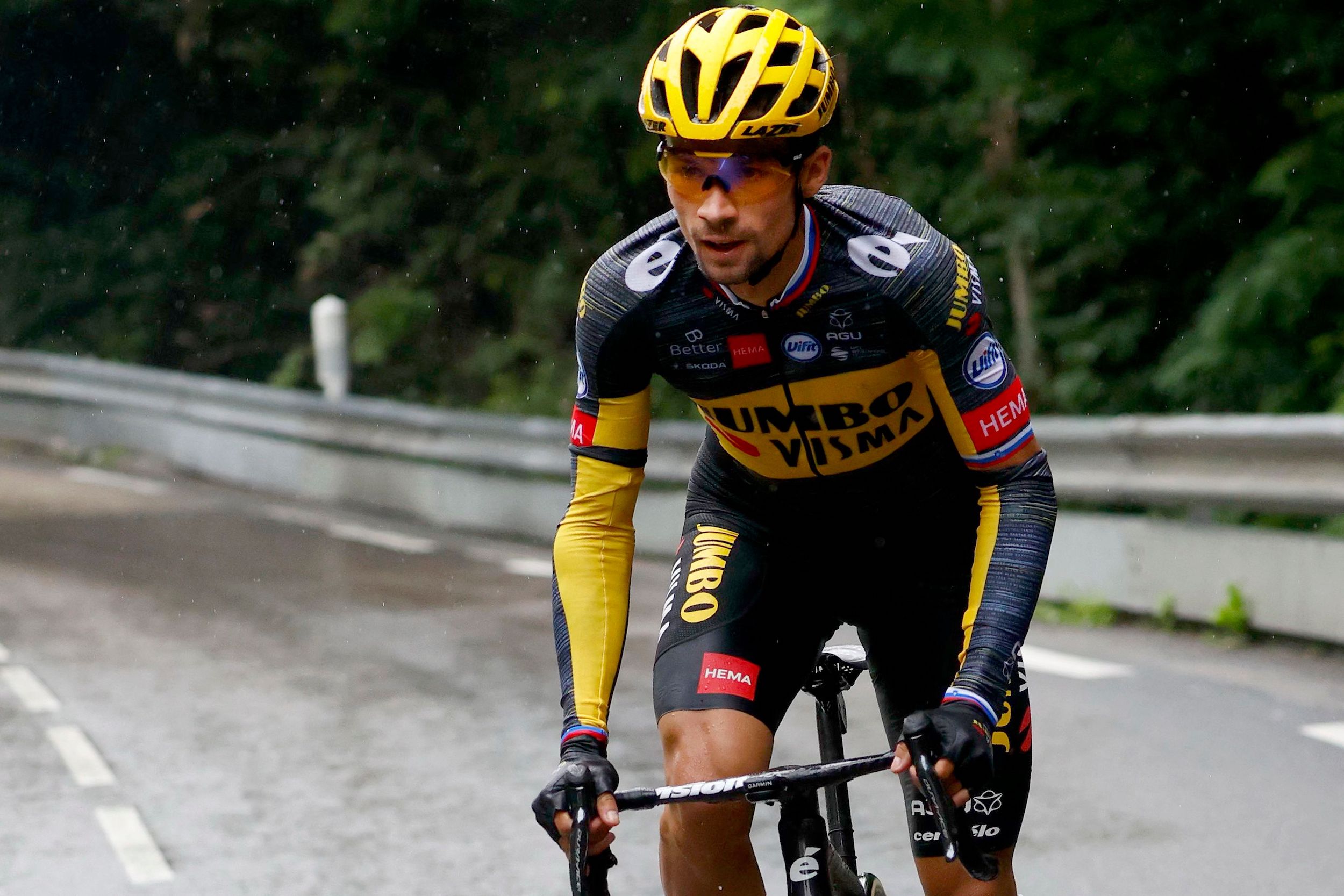
Primož Roglič (Jumbo-Visma) never seems to be out of action for long. Within a month of being forced to abandon the Tour de France injured, he was back in roaring form at the Olympics time trial in Tokyo, trouncing all the top specialists against the clock to take gold.
It appears therefore that Roglič has recovered and is in form, making him the man to beat at the Vuelta a España, where he’s striving to become only the third rider in history two win three successive overall titles.
Historically, Roglič loves to seize the initiative at Grand Tours right from the off — he spent the entire opening week of last year’s Vuelta in the red jersey, and, with the exception of his DNF at the Tour this summer, has ended the opening week inside the top two on GC in all of his Grand Tour appearances since 2019.
There’s no reason to believe that this Grand Tour will be any different. Given his recent against the clock, he could be in red as early as day one after the 7km opening time trial in Burgos. And with three other summit finishes to come during the week, plus a steep category three finish of Alto de Cullera on stage six, there will be plenty of opportunities for him to use his punchy kick to win stages and gain all-important bonus seconds.
If he is indeed arriving at this Vuelta in top form, Roglič could have some daylight between himself and his GC rivals by the end of the week.
Ineos Grenadiers’ strategy
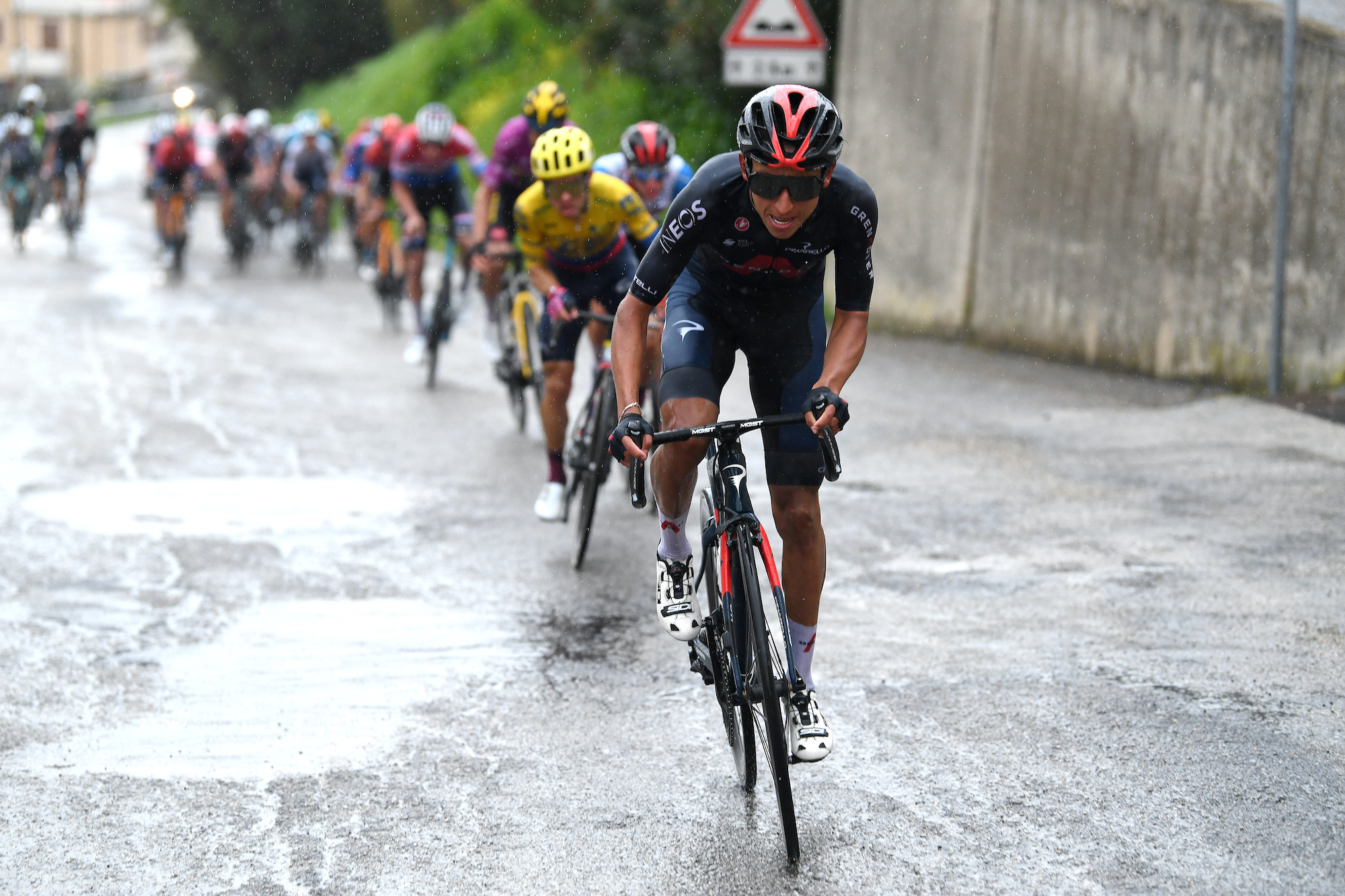
Jumbo-Visma may possess the Vuelta’s outstanding individual in Primož Roglič, but Ineos Grenadiers have the strongest complete line-up.
On the back of his Giro d’Italia win early this season, and some steady form-building performances at the Vuelta a Burgos last week, Egan Bernal looks like the team’s top contender. But if Richard Carapaz can carry through the form he had to make the podium at the Tour de France and win the Olympics road race, then he could put in a similar GC challenge as the one that saw him finish second behind Roglič last year, while Adam Yates (who was, remember, on fire during the springtime stage races) has the advantage of having targeted this Grand Tour specifically.
The latest race content, interviews, features, reviews and expert buying guides, direct to your inbox!
With so much firepower, what will the team’s strategy be? Given the relatively straightforward nature of the three big summit finish GC stages this week, it might be most sensible to ride defensively and keep as many of their leaders in GC contention as possible. But rather than let Primož Roglič dictate terms as he usually does, Ineos Grenadiers might want to use their strength in numbers to put him under pressure even at this early phase of the race.
Then there’s the question of how much freedom Tom Pidcock should be allowed to have? We all can’t wait to see what the 22-year-old is capable of doing at Grand Tour level on his debut, and there are stages to be won, notably a punchy uphill finish on stage six. But Ineos Grenadiers are typically a very disciplined team that assigns every domestique an important role in the machine, and they may need Pidcock as a committed domestique if they’re to have the best chance of winning the red jersey.
With so many stars in their line-up, Ineos Grenadiers will need a plan of how they are to ride as a collective force.
Early, but crucial, GC stages
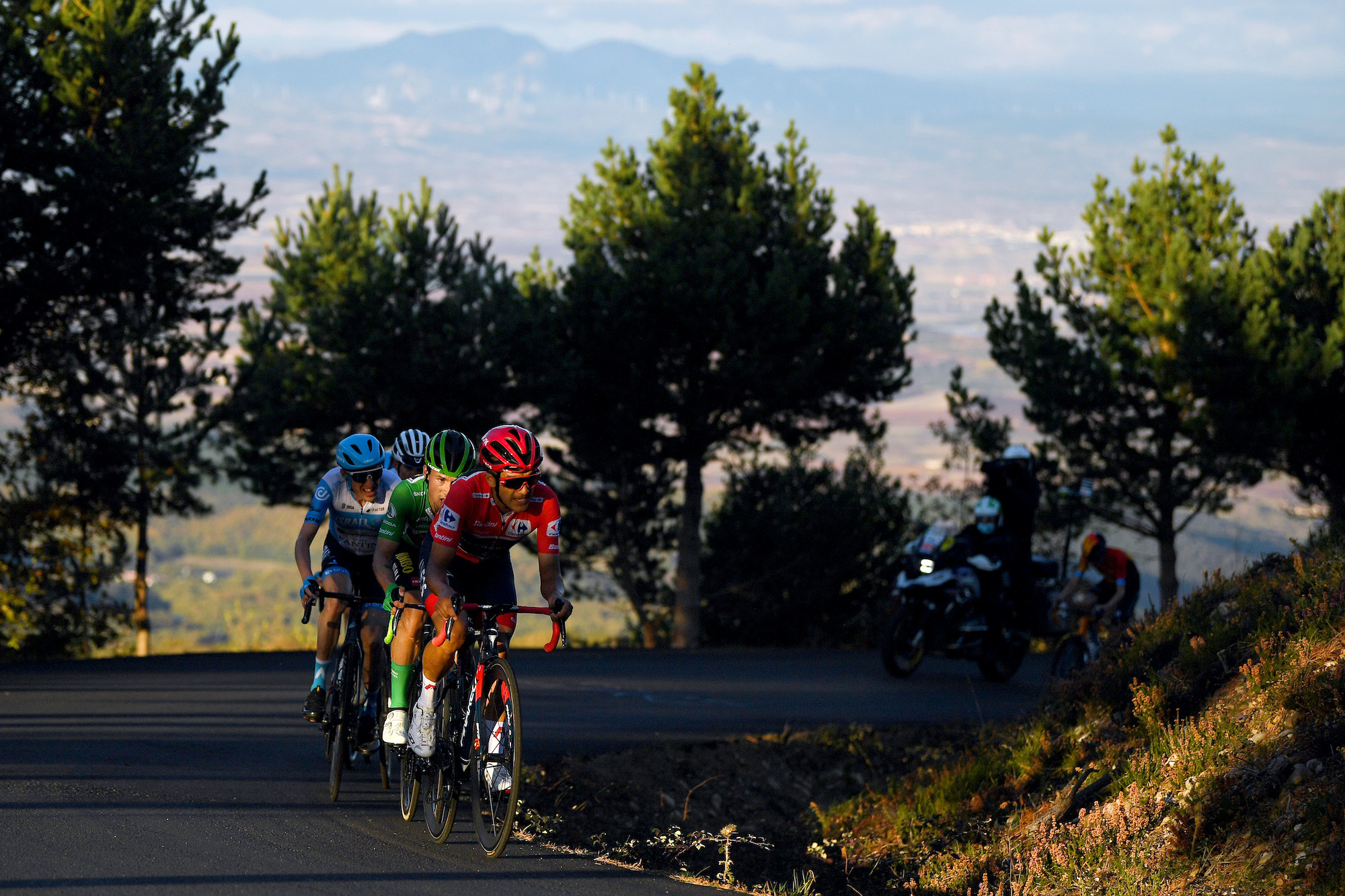
As ever on the Vuelta a España route, there isn’t a long wait for the GC race to get going. Although the opening time trial in Burgos is too short to cause significant time gaps, stage three’s summit finish at Picon Blanco will already establish a clear hierarchy at the top of the GC, and any GC candidates not up to speed will already tumble out of overall contention.
After that, a pair of very climb-heavy stages on Friday and Sunday, with summit finishes at Balcon de Alicante and Alto de Velefique respectively, are also guaranteed to host more GC action and more big-time gaps sorting the genuine overall contenders with the pretenders.
Along with Ineos Grenadiers and Roglič’s Jumbo-Visma, two other teams stand out as looking particularly strong: Movistar and Bahrain-Victorious.
As they so often do, to varying degree of success, Movistar come to the Vuelta with a trident of leaders; the same trident, in fact, that they brought to the Tour de France. We’ll have a good idea very soon if Miguel Ángel López has recovered from the problems that prevented from competing for GC at the Tour, and also whether Enric Mas is fresh enough in his first race since riding to sixth in France. If not, the onus could once again fall to 41-year-old Alejandro Valverde to lead the team.
Bahrain-Victorious have been on a hot streak of form of late, meaning recent Vuelta a Burgos winner Mikel Landa merits close attention. Victory in Burgos confirms that he’s overcome the Giro d’Italia crash that forced him out for a couple of months, and with Gino Mader, Mark Padun, Jack Haig and Giro runner-up Damiano Caruso all having shown career-best form this year, he’ll have a formidable mountain-train at his disposal too.
An unusually high number of sprints
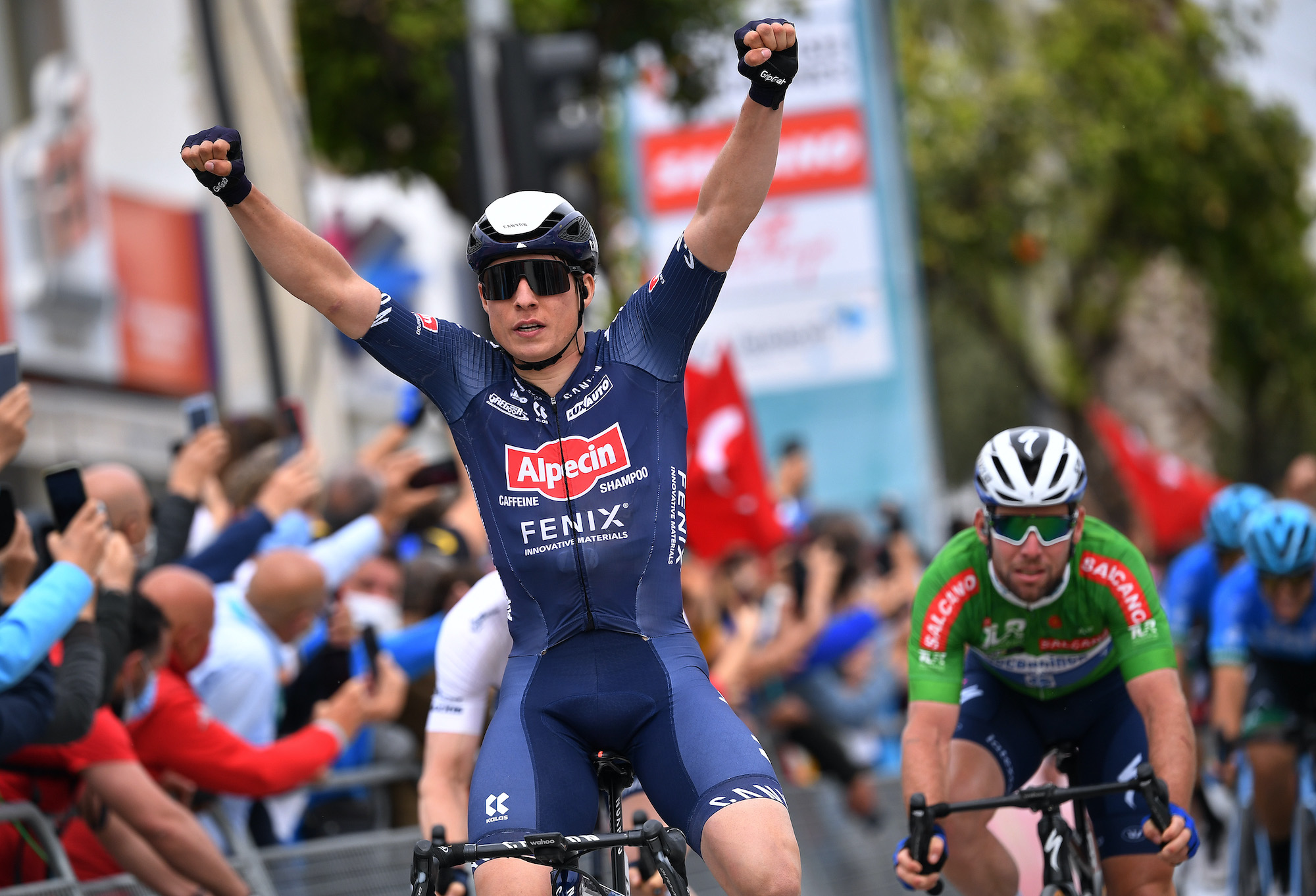
The opening week of this year’s Vuelta contrasts with most recent editions of the race in terms of just how many flat stages there are, with a total of four bunch sprints possible.
The first occurs as early as stage two in Burgos, and although the draggy uphill at the end of stage four’s flat parcours might make matters difficult, stages six and eight both have more straightforward finales.
In terms of form, Jasper Philipsen might be the man to beat. Although he didn’t win a stage, Philipsen was arguably the quickest sprinter behind Mark Cavendish (Deceuninck-Quick-Step) at the Tour de France, and with neither Tim Merlier or Mathieu van der Poel riding, he’ll command full support of his Alpecin-Fenix team.
In terms of pedigree, Arnaud Démare (Groupama-FDJ), is the most accomplished of the sprinters riding. The Frenchman is yet to get up to top speed this year, but could potentially dominate the bunch sprints if he rediscovers the legs that saw him win four stages at the 2020 Giro d’Italia just under a year ago.
Perhaps the most unpredictable performer will be Fabio Jakobsen (Deceuninck-Quick-Step), who returns to Grand Tour racing for the first time since his infamous crash last year in Poland. Two stage wins against fierce opposition at the Tour de Wallonie last month suggest he’s on the way up, but how will he cope with the demands of Grand Tour racing?
Besides this trio, watch out for Michael Matthews (BikeExchange) and Matteo Trentin (UAE Team Emirates), as well as the latter’s team-mate Juan Sebastián Molano, who was led out by Trentin for two stage wins at the Vuelta a Burgos recently.
Extreme weather
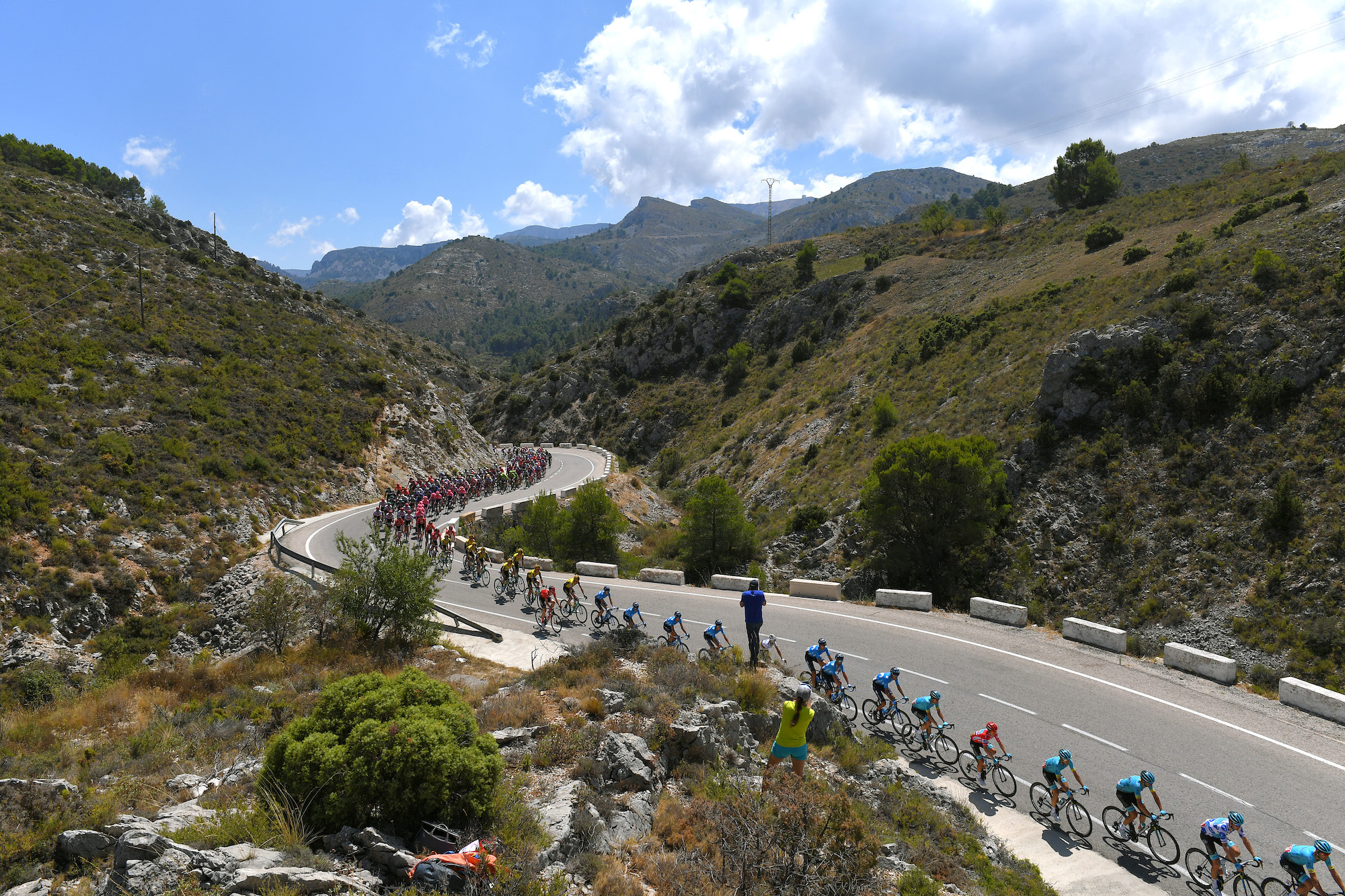
Spain during the summertime is not for the fainthearted, and the early weather forecasts are predicting blazing sunshine for the first week of the Vuelta.
Burgos is expected to feature temperatures exceeding 30 degrees Celcius for the opening three stages, and conditions aren’t likely to get much cooler once the race heads further and further south, especially once they reach the nation’s southernmost region of Andalusia at the end of the week.
This heat will have a draining effect on the riders, and could expose vulnerabilities in riders that we don’t usually see.
As well as the heat, the riders may also have to contend with wind on some stages this week. The road to Albacete where stage five reaches its climax almost always blows strong, and usually forces echelons to form whenever the Vuelta visits, while the coastal roads of stage eight will also be exposed to the seaside breeze.
The hot temperatures mean these stages may not have as much impact as the organisers might have anticipated, but it wouldn’t take much for crosswinds to have an effect, and potentially throw some real spanners in the works in terms of the GC race.
Stephen Puddicombe is a freelance journalist for Cycling Weekly, who regularly contributes to our World Tour racing coverage with race reports, news stories, interviews and features. Outside of cycling, he also enjoys writing about film and TV - but you won't find much of that content embedded into his CW articles.